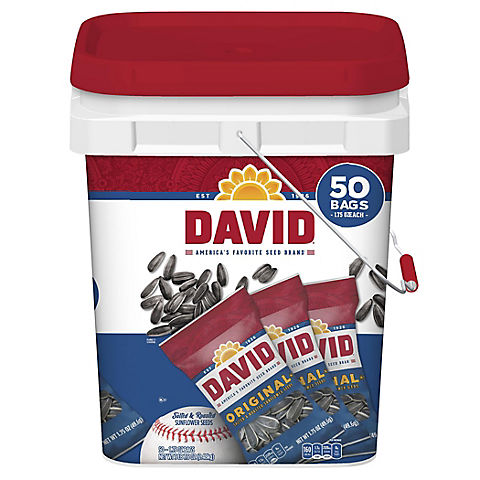David Sunflower Seeds, 50 ct. – Dried Fruit & Nuts
Whether you’re needing a boost of energy or you want to add some flavor to your meal, enjoy the delightful and satisfying crunch of David Seeds Original Sunflower Seeds. They’re easy to eat and fun to share. Packed with nutritious unsaturated fats, fiber, and protein in up to 6 grams per ounce, they’ll keep your energy up and your hunger satisfied. With a robust and salty flavor, it’s a classic snack you’ll always want to crunch on.
Whether you’re needing a boost of energy or you want to add some flavor to your meal, enjoy the delightful and satisfying crunch of David Seeds Original Sunflower Seeds. They’re easy to eat and fun to share. Packed with nutritious unsaturated fats, fiber, and protein in up to 6 grams per ounce, they’ll keep your energy up and your hunger satisfied. With a robust and salty flavor, it’s a classic snack you’ll always want to crunch on.
- Contains (50) 1.75 oz. bags for easy, on-the-go snack time
- All-natural ingredients and nutrients with vitamins and minerals for a healthier alternative snack
- Packed with nutritious unsaturated fats, fiber, and protein
- Great source of fiber and vitamin E
- Original lightly salted, robust shell for a satisfying crunch and taste
Additional information
| Count | 50 |
|---|---|
| Weight | 1.75 oz. |






by Jill
My daughter likes this and it is way cheaper than buying the single pack